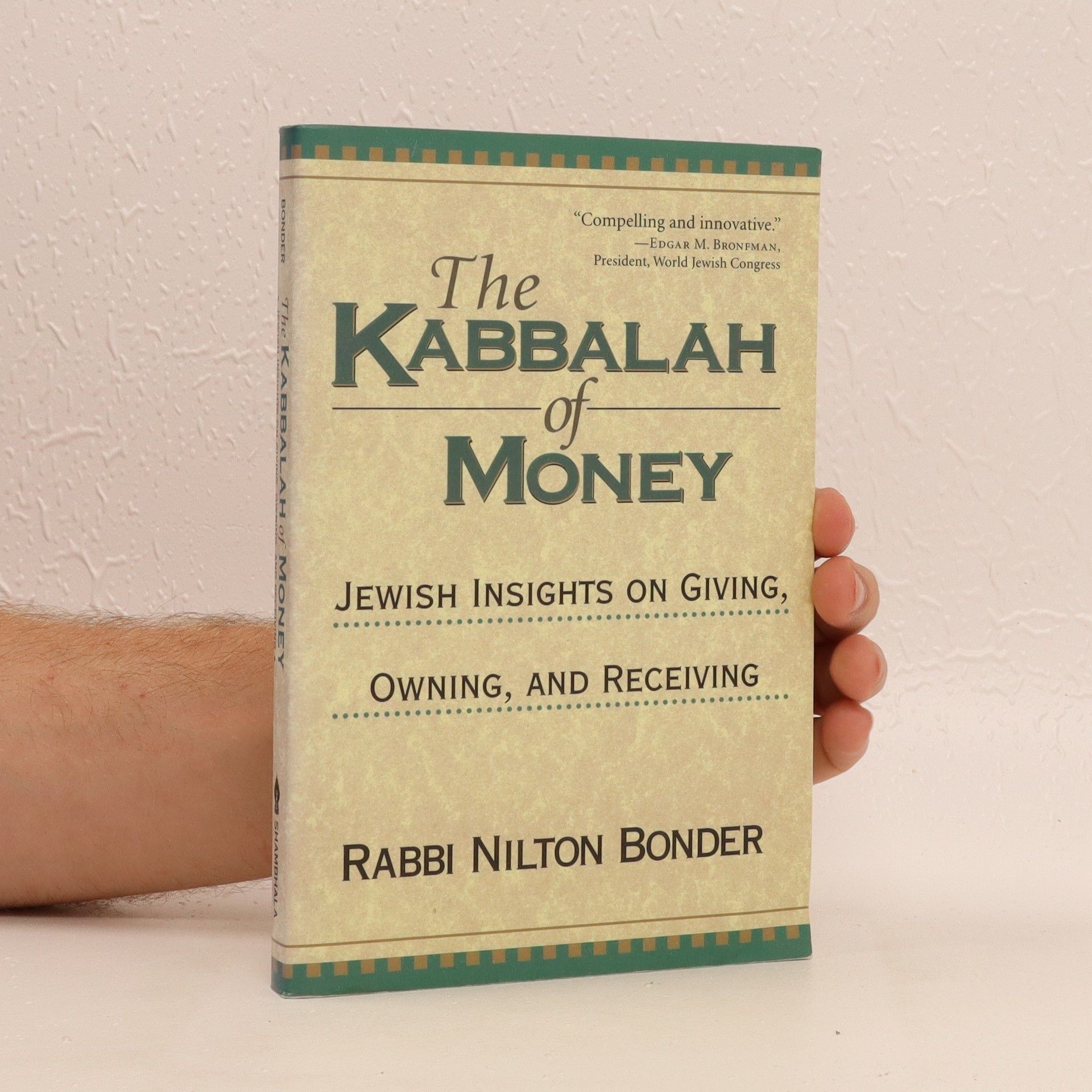Jidiše kop Tvůrčí řešení problémů v židovské tradici, vzdělanosti a humoru Židé mají přirozené nadání překonávat nesnáze. Pokud jste v úzkých, naučíte se myslet rychle - Židé, kteří byli pronásledováni po staletí, mají v hledání východisek ze zdánlivě bezvýchodných situací dlouholetou praxi. Ty nejobtížnější problémy Židé řeší také pomocí tradičních způsobů interpretace a rozumového chápání posvátných spisů. Vznikl tak důvtipný způsob myšlení, který se v jidiš nazývá jidiše kop - doslova: "židovská hlava".
Nilton Bonder Knihy





Jeden židovský aforismus nám říká, že člověk ukazuje svůj charakter třemi způsoby: svým talířem (tedy svou chutí k jídlu), svou kapsou (tedy svým vztahem k penězům) a svou zlostí. Zde se budeme zabývat "kapsou" a tím, do jaké míry se při zacházení s penězi odhalujeme. V kapse každého z nás se skrývají otázky přežití a jeho hranice - otázky vztahující se k výstřelkům, vlastnictví a nejistotě. Stejná tradice hovoří o tom, že: "Nejdelší cesta vede od srdce do kapsy." Nedostaneme se od srdce ke kapse, aniž bychom se podívali na život jako celek se všemi jeho významy. Tím, jaký vztah máme ke své kapse, odhalujeme, kdo jsme a kde stojíme na tom nezměrném trhu hodnot, kterému říkáme realita.
The Kabbalah of Money
- 192 stránek
- 7 hodin čtení
This book challenges us to take a broad and ethical view of economic behavior, which includes all forms of exchange and human interaction, from how we spend our money to how we fulfill our role as responsible human beings in a global economic framework. Drawing on Jewish ethical teachings, mystical lore, and tales of the Hasidic masters, Bonder explores a wide range of subjects including competition, partnerships, contracts, loans and interest, tipping, and giving gifts.
Wer mit dem Rücken zur Wand steht, muss schnell denken. Wie aber lernt man, schnell zu denken und klug zu handeln, bevor man an der Wand steht? Rabbi Nilton Bonder bringt den Leser in diesem blitzgescheiten und äußerst lebenspraktischen Buch in Kontakt mit nützlichen Erfahrungen und Strategien, wie sie nur der „jiddische Kopp“ zu bieten hat. Sie helfen, komplexe Sachverhalte rasch zu erfassen und völlig neu zu betrachten. Solchermaßen selbst befähigt, lassen sich auch scheinbar unauflösbare Schwierigkeiten mutig angehen und elegant meistern. In diesem Buch wird die Kunst, Probleme zu lösen, über meisterhaft erzählte Geschichten aus der jüdischen Weisheitstradition zugänglich gemacht. Diese Kunst hat in der jüdischen Kultur eine lange Tradition. Die jahrtausendelange Erfahrung existenzieller Bedrohung hat unglaubliche Lösungsgeschichten entstehen lassen, die immer aufs Neue überraschen: durch Scharfsinn, Klugheit, Mut und – nicht zuletzt – bei allem Ernst durch tiefen Witz. Ein Schatz nicht nur für Therapeuten und Berater, sondern für alle, die anderen und sich selber helfen wollen, nicht vor die Wand zu fahren. Gehoben und in klaren, einfachen Worten beschrieben von einem Meister komplexen Denkens. „Wie erlangt man ein gutes Urteilsvermögen?" – „Durch viel Erfahrung." – „Und wie sammelt man viel Erfahrung?" – „Durch Fehlurteile."